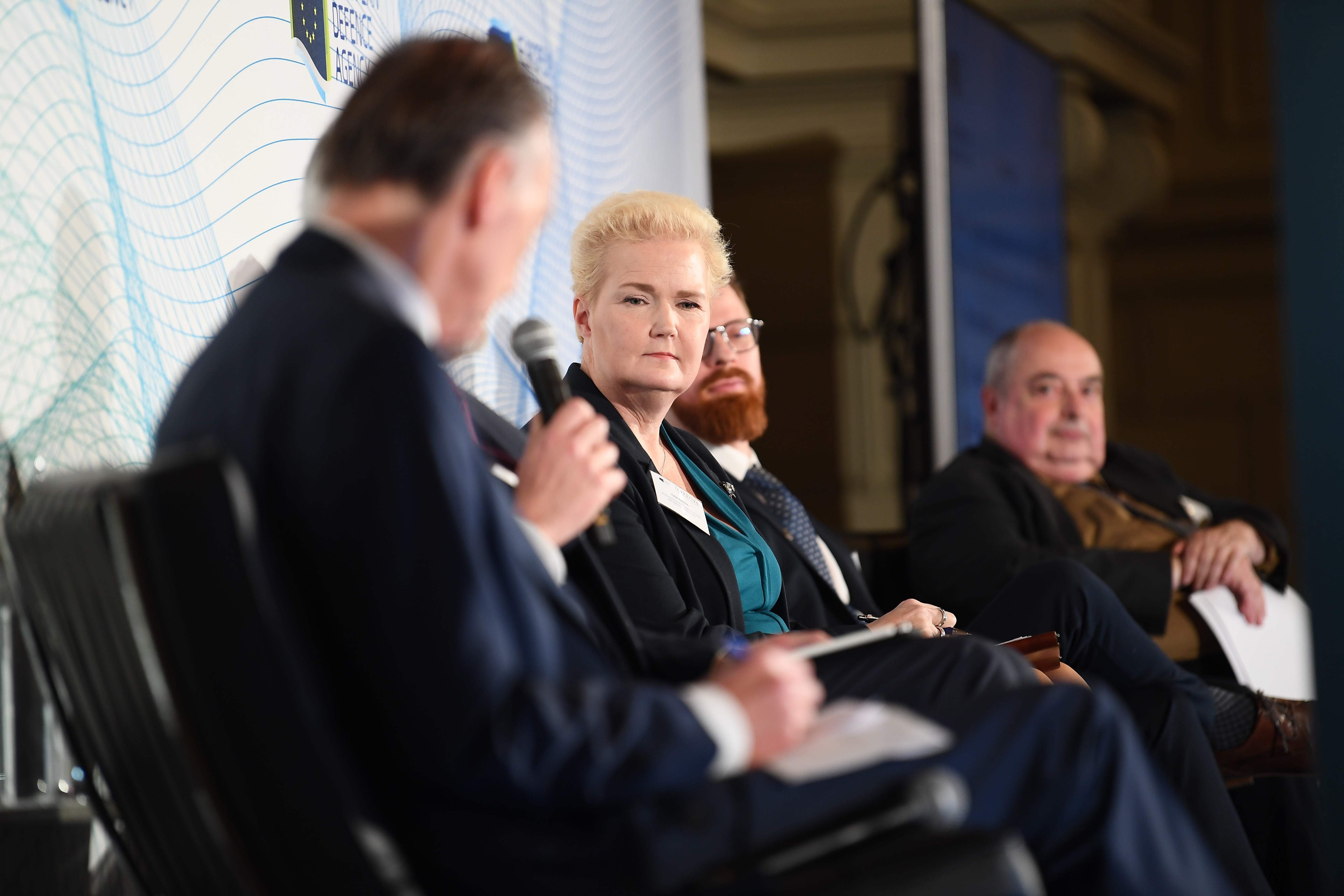Act fast. Face up to war in Ukraine. Prepare for 2040. Those were the messages from industry panelists and experts gathered on Thursday to discuss strategic autonomy and defence industrial gaps at the European Defence Agency (EDA) annual conference.
As years of underspending take their toll on Europe’s defence capacities, Member States face the challenge not only of building back their armed forces but ensuring a certain level of strategic autonomy - relying less on the United States. That burden also falls on the European defence industry that has long been geared to peacetime production, the panel heard.
“The war in Ukraine has highlighted our capability shortfalls,” said Jean-Pierre Maulny, Deputy Director, French Institute for International and Strategic Affairs (IRIS). “The United States has larger stocks of anti-tank missiles and air defence systems. Sometimes we in Europe don’t do more because we cannot do more,” he told the panel.
In the search for more self-reliance, Tuija Karanko, Secretary General, Association of Finnish Defence and Aerospace Industries, reminded the 300 participants in Brussels and the 1,000 registered online viewers that: “all the military people in this room have known about their gaps for many years … We need more of that transparency.”
For industry, strategic autonomy needs to exist at different levels, but that is difficult because the EU cannot control everything at every level. “We are not fully autonomous because we have key companies depending on third parties,” said Pablo Gonzalez, Director NATO and EU Defence & Space, Indra. There is a need for younger, skilled engineers, the panel heard.

So what to do? More European collaboration will lower costs, as well as joint research and joint development. Joint procurement for strategic assets made in Europe could help. But having a “Buy European” law, as in the United States, brings risks of isolation for the European continent, Karanko said.
For Laurynas Šatas, Chief Executive at Aktyvus Photonics, Europe has the potential to improve, but there is a need for more emphasis on the defence sector. As a Lithuanian laser company, Aktyvus Photonics is an example of a small- and medium-sized company that would benefit from a better environment with less European bureaucracy to bridge ambition and reality as it seeks to pass innovation up to bigger companies. “We have the intellectual capacity. Tomorrow is in our hands,” he said.